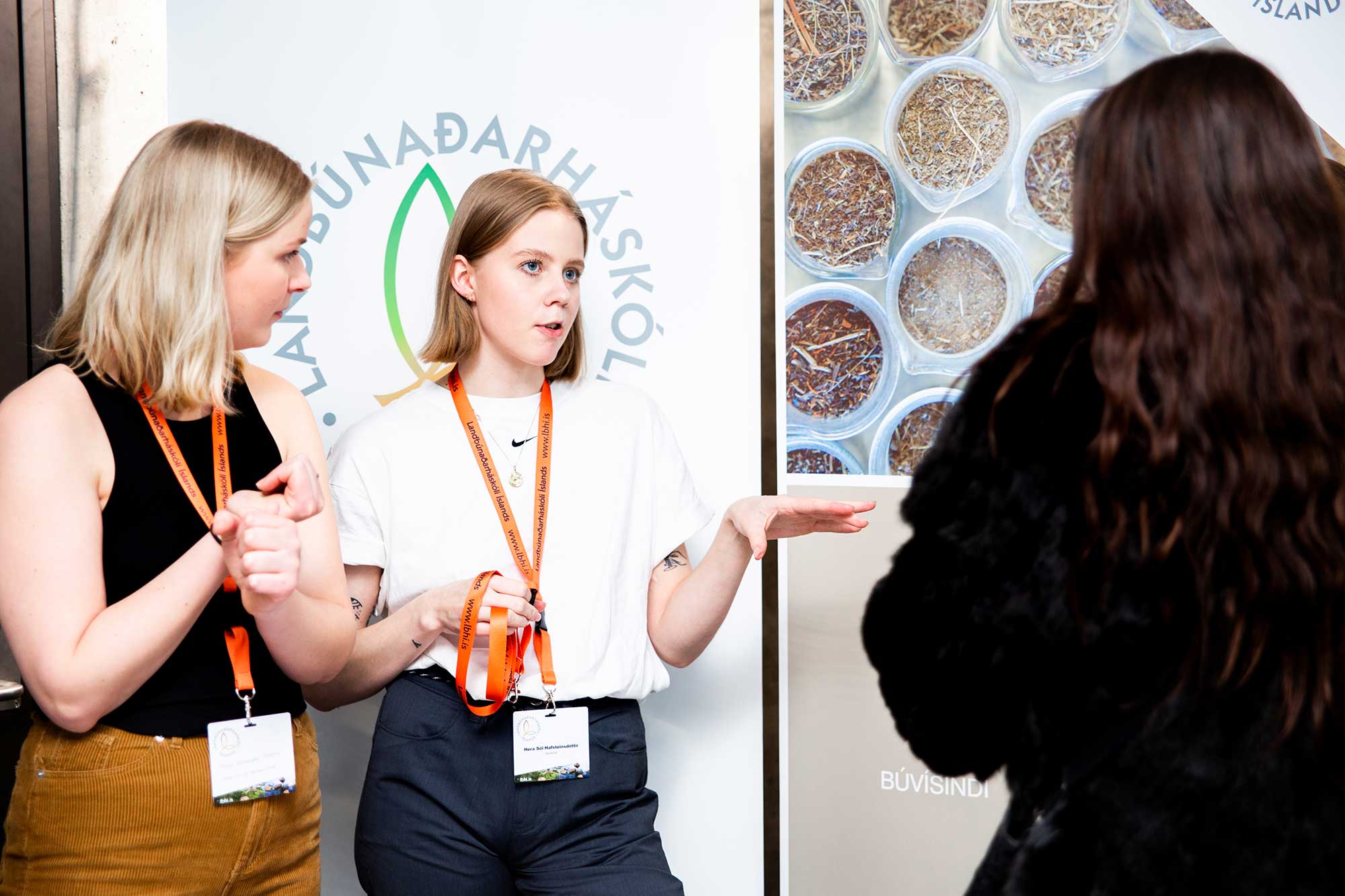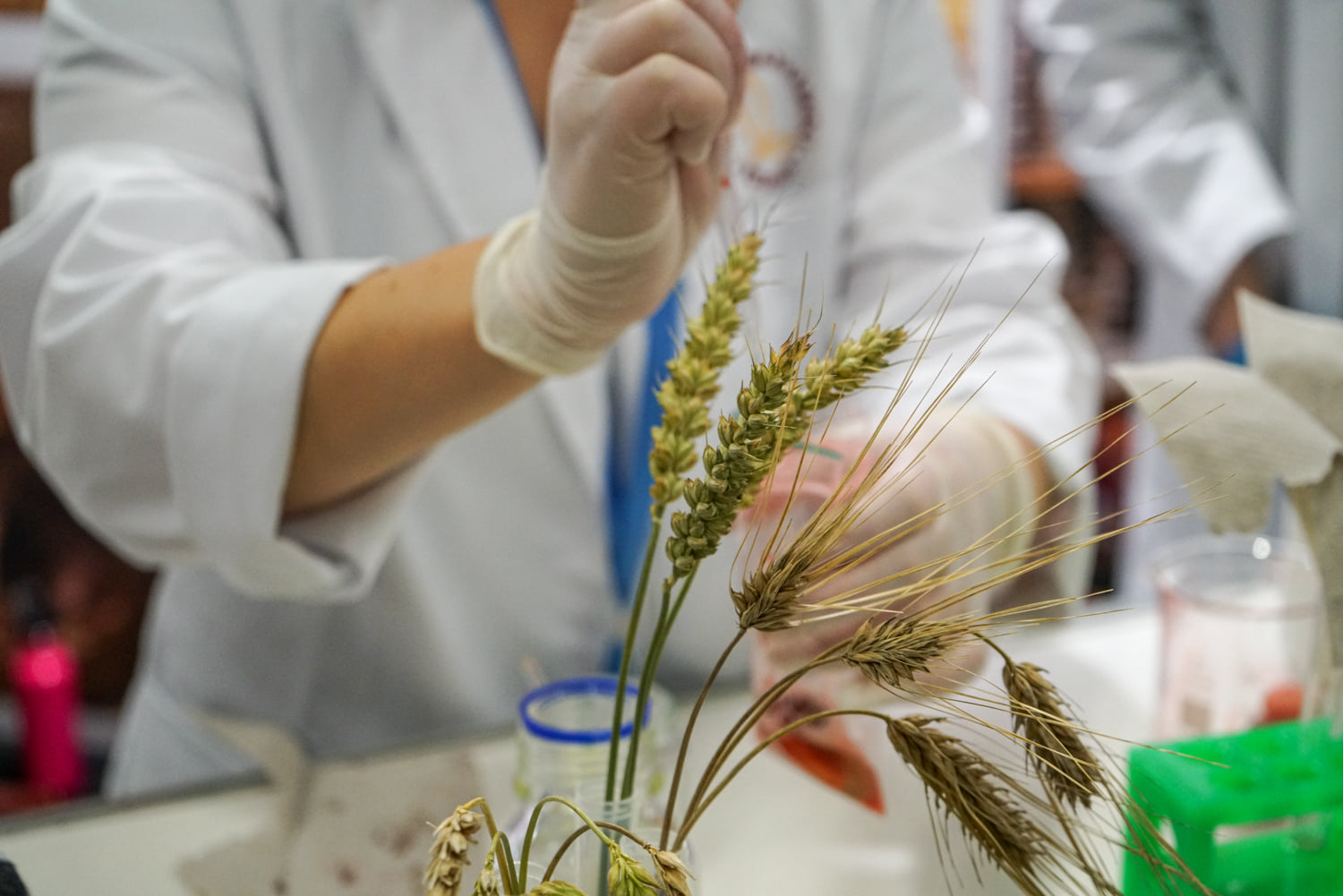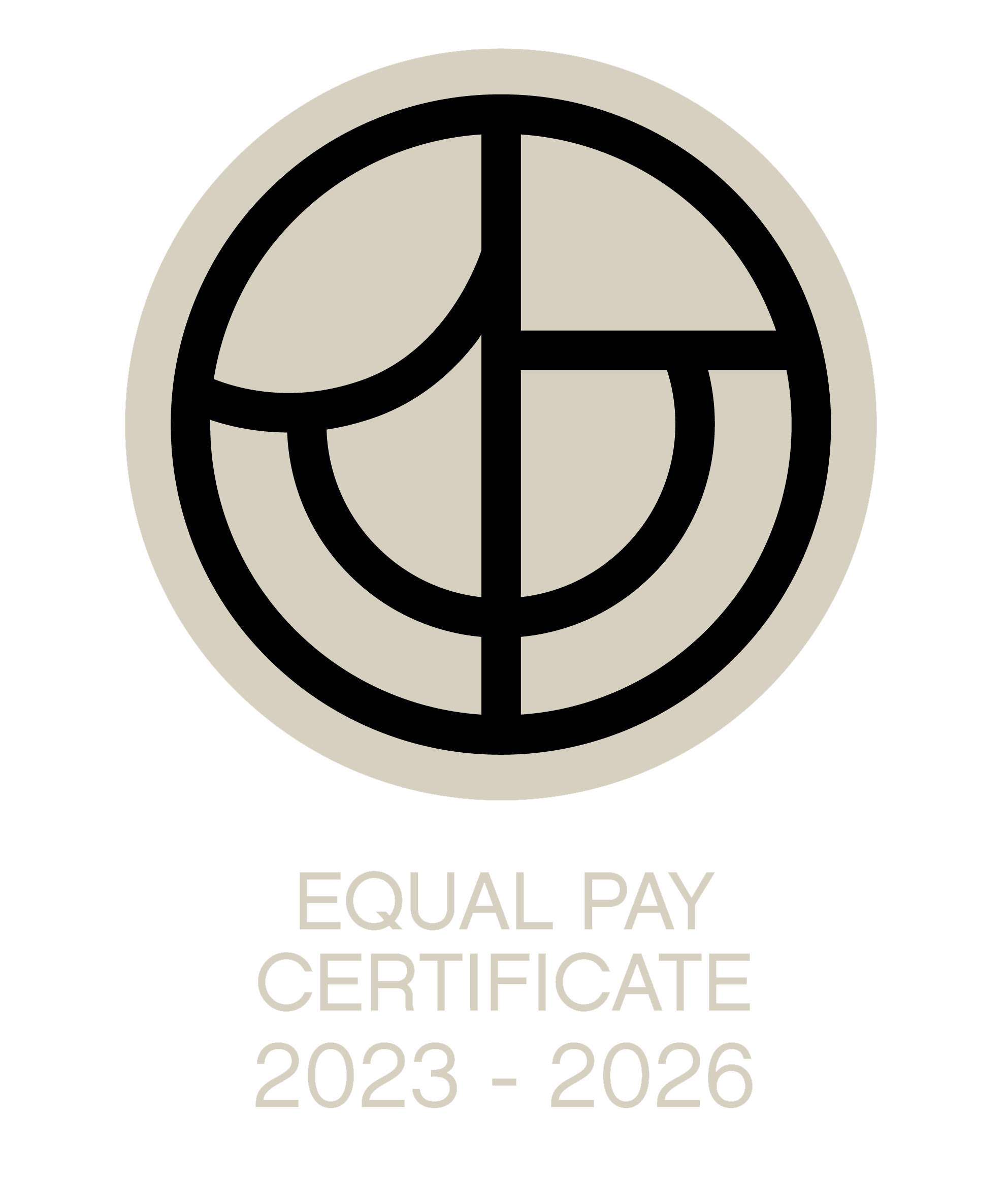Agricultural Sciences
Agriculture, food & the environment
Three year BSc. studies - 180 ECTS credits.
This programme enters into the perspectives of the economic, biological and technical conditions for livestock and land utilization and various aspects of agricultural sciences, such as feeds and feeding, breeding, housing and animal well-being. Natural resources are addressed, emphasizing ecology, biology, livestock science, soil science, chemistry etc. Insights are provided into the technology of utilizing natural resources, for instance work procedures, machines, tools and the environment.
Programme director Helgi Eyleifur Þorvaldsson


General
Language(s) of instruction/examination
Icelandic, only occasionally in English or Scandinavian languages. Most textbooks are in English or Scandinavian languages
Level of qualification
Three years at first cycle (level 2) of higher education according to National Qualification Framework for Higher Education in Iceland.
Official length of programme
Full time study for three academic years.
Admission requirements
Icelandic matriculation examination (studentsprof: school leaving examination after four years of secondary school) or another secondary examination which the University board regards as equivalent.
Mode of study
Full time studies - 180 ECTS

Programme requirements
180 ECTS credits have to be completed for the qualification, 60 ECTS credits per year. Students have to complete all the first and second year credits before they commence on their third year.Obligatory courses are 152 ECTS credits, and optional courses are equivalent to 18 ECTS credits. Students complete their studies with a research project of 10 ECTS credits. The students present the results of their research project in a written thesis and an oral examination.
This programme enters into the perspectives of the economic, biological and technical conditions for livestock and land utilization and various aspects of agricultural sciences, such as feeds and feeding, breeding, housing and animal well-being. Natural resources are addressed, emphasizing ecology, biology, livestock science, soil science, chemistry etc. Insights are provided into the technology of utilizing natural resources, for instance work procedures, machines, tools and the environment.





